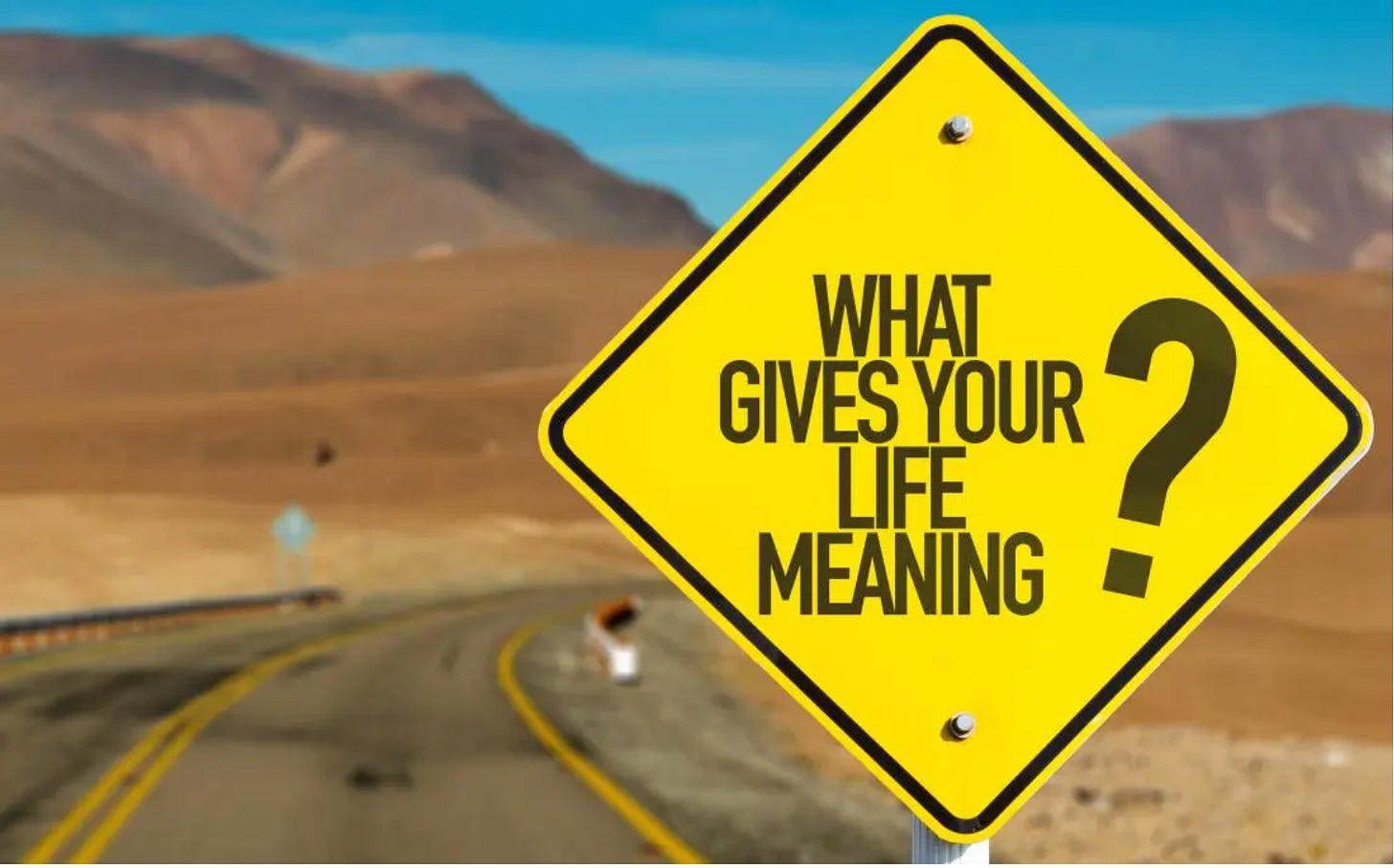Have you ever experienced an existential crisis? Those moments when unsettling questions about the meaning of life and the purpose of success and happiness start haunting your mind?

My friend, D, is a vibrant, early middle-aged guy. He holds a high-ranking tech job, owns multiple houses, and has a loving family—everything one could desire in life. However, lately, he's been contemplating the meaning of it all. He stumbled upon an ancient teaching from Buddha, who defined life's purpose as to end suffering, which stems from our unlimited desires for pleasure, material possessions, and immortality. This realization left D conflicted.
“When I imagined an existence as a monk in a monastery getting joy out of living in the world as it was I felt repulsed: the world is broken! There are so many ways we can make it better, that we have been making it better. Where would progress come from, if all humans focused on eliminating their suffering and enjoying the world as it is? Who would push themselves hard to invent new things - since that requires suffering?”
At first, I thought D's perspective seemed reasonable. Many significant innovations, like the Covid vaccine or air conditioning, were born from people's suffering. However, upon deeper reflection, I noticed that much of our so-called 'progress' has led to more suffering, such as nuclear bombs and addictive drugs.
Contentment
Our minds are often clouded with unsatisfied desires—to become someone or possess something we don't have. We want better climbing shoes, more time off, and a better school for our kids. However, if we pause and truly examine our lives, we may find that we already possess what we need to live. Letting go of these desires can lead to a state of contentment.
However, it's natural to wonder if we can sustain contentment all the time. As Buddha would say
“Nothing is permanent (not even contentment)”
If hunger gnaws at your stomach, contentment becomes elusive. D’s fear of a world filled with individuals without desire will reach complacency is real. In fact, humans would likely go extinct if they don't strive to improve their situation. Don't believe it? Try fasting for a couple of days.
However, the true concern in this abundant world lies in excessive desire. At the personal level, it’s too easy to overeat at a Korean barbecue when hungry or keep upgrading our lifestyle as we get a raise. At the global level, our relentless pursuit of industrialization has contributed to grave consequences such as global warming and coral bleaching. The technology we invent for comfort and fulfillment often backfires in the long term.
Middle Way
This is where Buddha's teachings become most relevant. Embarking on a personal quest to find the Middle Way, the middle ground between attachment and aversion.
“If we seek happiness purely through indulgence, we are not free. If we fight against ourselves and reject the world, we are not free. It is the middle path that brings freedom." - Buddha
Here is my response to D,
I believe that when humans embrace the Middle Way, we will invent with intention rather than greed, push ourselves ambitiously without succumbing to burnout, and find contentment with minimal suffering. It is this balance that can make the world a sustainable and better place.
Learning to rest in the middle way demands practice and discernment to recognize when enough is enough. But, how do we know when? To be continued.
I will be skipping the newsletter next week to prepare for one of the most important backpacking trips of the year at The Enchantments 🥾. The next one will be on August 6th.
One things to think about this week
Have you ever experienced an existential crisis? If so, what are some of the meanings you attribute to life?
One favorite reading this week
Prepared: What Kids Need for a Fulfilled Life by Diane Tavenner, one of Bill Gate books recommendation. The book explores the complex question: If you could completely re-imagine what a good education is all about, what kind of school would you make?



The hard part is how to define what is the middle. What is too much and what is too less 🥲🥺. Seeing different countries especially developing and then the richest countries and the various demographics makes me think , how much is too much and how much is enough